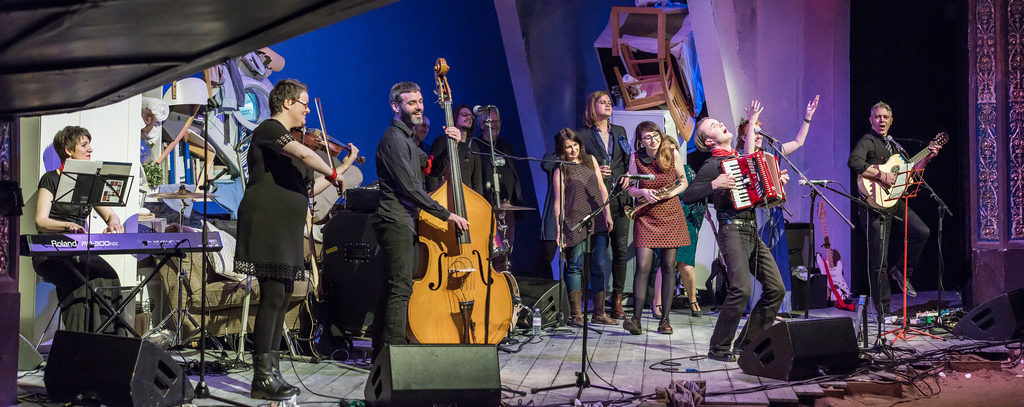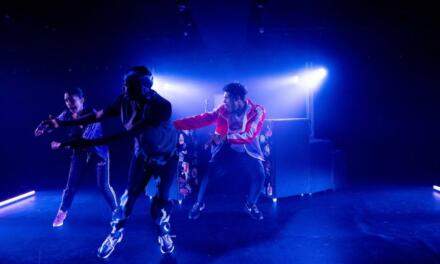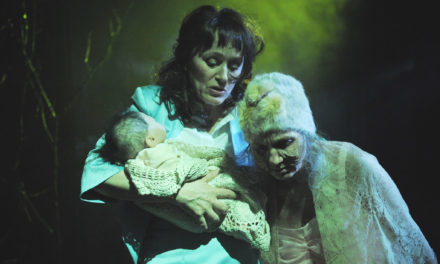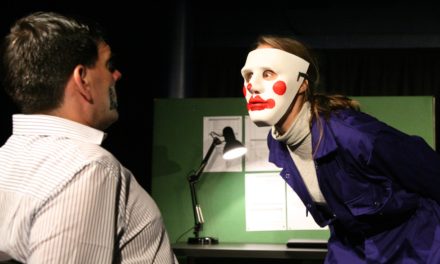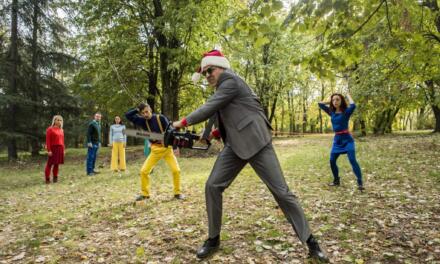Scotland has a rich tradition of the variety nights and music hall theatre. From the tail-end of the Victorian era through to the mid-20th century, Glasgow alone grew to have thirty-two theatres all playing to packed audiences. These were nights for entertainment, hosting comedians, jugglers, wrestlers and dancers. Every night always culminating in a final altogether sing-along. Today, only six of these theatres remain in use, and bar panto-season, the variety tradition rarely graces major stages in Scotland.
Over in Edinburgh, David Greig, artistic director at Edinburgh’s Royal Lyceum, is looking to change that. As part of his inaugural programme, the Lyceum will play host to two variety nights, featuring a line-up from across Scotland. One of the main motivations for Greig is to showcase a tradition that is central to the how Scottish theatre culture has evolved.
“It’s through our culture like a stick of North Berwick rock. An audience facing engagement with music and poetry and comedy is what built our plays, from Ane Satyre right through to The Cheviot”
Yet, these variety nights are not about solely about preserving or re-performing a popular tradition, but about responding to what’s popular in the current context. To host in this grand old theatre, what Greig describes as, “the most exciting, talented, fascinating young artists of the moment.” This means spoken word artists, musicians and performers experimenting with writing. What makes this not a scratch night though, is placing the focus on entertainment, rather than on the artist’s development.
“This is supposed to be entertaining. It’s not that we might not have people trying out new stuff. But it’s more that these are intended to be big, fun nights out and we’re hoping to get our artists at the top of their game… Even if it sometimes feels raggedy and berserk. It’ll be crafted.”
My experience of the Lyceum’s first Variety Night is exactly what I’m promised. It still feels like an experiment in its early stages, but the bill, curated by Jenny Lindsay (formerly of Rally and Broad, now of Flint & Pitch), delivers big laughs, big emotions, and the obligatory altogether sing-along to close. Spoken-word artist Luke Wright steals the show, with his univocalism in “i” for Iain Duncan Smith delighting an audience less than enamored with the former Secretary of State for Work and Pensions. There is work from authors, poets, musicians and theatre-makers. There are plenty of surprises, including a prize-draw, and the whole evening builds towards a rousing and cathartic set from Glasgow-based A New International.
The curation is excellent, there are no headliners, and the variety of forms means there is something that will appeal to most members of the audience. Most importantly, there is a clear sense that each act is invested in the concept of the night itself, sharing in our host’s (Jenny Lindsay and Siân Bevan) enthusiasm and gifting it to the audience. The audience take a while accept this gift, which is understandable given everyone’s unfamiliarity with what is going to happen. Yet the lasting feeling is one of potential.
Theatre is a social event and the rules in which this event happens take a while to formulate. This relationship is still in its infancy. Before the event in email interview, Lindsay described the variety night as needing the audience to “buy-in” to it, and by the end of the night (and possibly after some alcohol) most of the audience had done so. Given time, and repetition, the potential of this night is vast. It is this relationship, between audience and performer, or between audience and institution, that is most exciting.
The next Variety Night is on the 26th February, and the relationship will surely continue on a surer footing after such a successful first step. Yet I can’t help but wonder what this relationship could look like after the thirtieth. Over time a popular theatre might emerge that is negotiated and specifically located to the Lyceum, based on a lasting relationship between audience and venue. It could be a regular occasion, a place to meet friends, a place to do politics, a place to gather and be entertained. Theatre as a social event.
This post was written by the author in their personal capacity.The opinions expressed in this article are the author’s own and do not reflect the view of The Theatre Times, their staff or collaborators.
This post was written by Andrew Edwards.
The views expressed here belong to the author and do not necessarily reflect our views and opinions.

